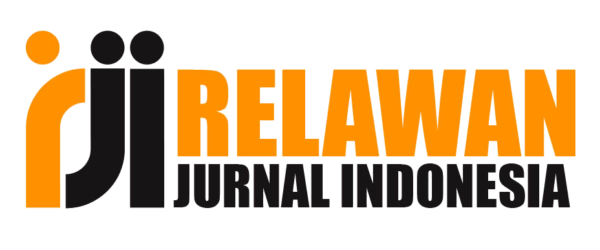ANALISIS DESAIN PEMBELAJARAN UNTUK MENINGKATKAN LITERASI SAINS BERDASARKAN PROFIL PENALARAN ILMIAH
Abstract
Mendesain suatu pembelajaran merupakan suatu kewajiban seorang pendidik. Desain pembelajaran harus disesuaikan dengan keadaan peserta didik.Penelitian ini bertujuan untuk menentukan desain pembelajaran Elektronika Dasar 1 yang sesuai dengan kemampuan penalaran ilmiah peserta didik di Program Studi Pendidikan Fisika Universitas Jambi dalam rangka melatihkan kemampuan literasi sain mahasiswa.Desain yang digunakan adalah desain campuran dengan menggunakan instrumen Lawson’s classroom test of scientific reasoning pada subjek penelitian sebanyak 93 mahasiswa yangakan mengontrak matakuliah elektronika dasar 1 tahun depan. Penelitian ini menemukan bahwa 95,7% mahasiswa dalam kategori konkret, 4,3% mahasiswa dengan kategori tansisi, dan 0% dalam kategori formal. Persentase kemampuan penalaran Conservation thinking41%, proportional thinking 8%, control of variable 11%, probabilistic thinking 12%, correlational thinking 19%, dan hypothetivo-deductive reasoning 13%. Dari data kuantitatif ini dilanjutkan penentuan desain secara kualitatif yang menyimpulkan bahwa desain pembelajaran yang cocok adalah pembelajaran berbasis inkuiri terstruktur, pembelajaran inkuiri terbimbing atau dengan pembelajaran proyek yang dibimbing serta kegiatan lab haruslah bersifat real lab.
Full Text:
PDF (Bahasa Indonesia)References
Bybee, R.W., Scientific literacy, environmental issues, and PISA 2006: The 2008 Paul F-Brandwein lecture. Journal of Science Education and Technology, 2008. 17(6): p. 566-585.
Choi, K., et al., Re‐conceptualization of scientific literacy in South Korea for the 21st century. Journal of research in Science teaching, 2011. 48(6): p. 670-697.
NRC, National science education standards. 1996: National Academy Press.
Lokan, J., L. Greenwood, and J. Cresswell, The PISA 2000 survey of students’ reading, mathematical and scientific literacy skills. Melbourne: ACER, 2001.
OECD, Draft Science Framework, 2013, Pairs: OECD.
. Smith, P.L. and T.J. Ragan, Instructional design. 2005: Wiley New York.
Shambaugh, R.N. and S. Magliaro, Instructional design: A systematic approach for reflective practice. 2006: Pearson College Division.
O’Donnell, J.R., Creation of national norms for scientific thinking skills using the classroom test of scientific reasoning, 2011, Winona State University.
Zimmerman, C., The development of scientific thinking skills in elementary and middle school. Developmental Review, 2007. 27(2): p. 172-223.
Bao, L., et al., Learning and scientific reasoning. Science, 2009. 323(5914): p. 586-587.
Lawson, A.E., The development and validation of a classroom test of formal reasoning. Journal of research in Science teaching, 1978. 15(1): p. 11-24.
Lawson, A.E., et al., Development of Scientific Reasoning in College Biology: Do Two Levels of General Hypothesis‐Testing Skills Exist? Journal of research in Science teaching, 2000. 37(1): p. 81-101.
Han, J., Scientific reasoning: Research, development, and assessment, 2013, The Ohio State University.
Shayer, M. and P.S. Adey, Accelerating the development of formal thinking in middle and high school students IV: Three years after a two‐year intervention. Journal of research in Science teaching, 1993. 30(4): p. 351-366.
Vygotsky, L.S., Mind in society: The development of higher psychological processes. 1978: Harvard university press.
Piaget, I.a., The Growth of Logical Thinking from Childhood to Adolescence. 1958: Routledge & Kegan Paul.
Arends, R., Learning to teach. 2014: McGraw-Hill Higher Education.
Pizzini, E.L., D.P. Shepardson, and S.K. Abell, The inquiry level of junior high activities: Implications to science teaching. Journal of research in Science teaching, 1991. 28(2): p. 111-121.
Wenning, C.J., The Levels of Inquiry Model of Science Teaching. Journal of Physics Teacher Education Online, 2011. 6(2): p. 2-9.
DOI: https://doi.org/10.17509/wapfi.v2i1.4867
Refbacks
- There are currently no refbacks.
Copyright (c) 2017 Wahana Pendidikan Fisika
The Journal Wahana Pendidikan Fisika http://ejournal.upi.edu/index.php/WapFi/ is licensed under a Creative Commons Attribution-ShareAlike 4.0 International License
The Journal WaPFi (Wahana Pendidikan Fisika).
All rights reserverd. pISSN 2338-1027 eISSN 2685-4414
Copyright © Faculty of Mathematics and Science Education (FPMIPA) Universitas Pendidikan Indonesia (UPI)










